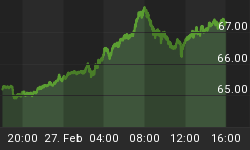According to the ZEW think tank's October expectations indicator, Germany's financial establishment is downright depressed. The investor sentiment index - based on a survey of analysts and institutional investors - fell for the ninth straight month, hitting a thirteen-year low of -27.4, down from -22.2 in September.

The ZEW purports to be a leading indicator for the German economy. However, as we've often noted before, the ZEW's persistently gloomy readings in recent months are giving the index a bad reputation, as the wider economic data point to an increasingly resilient German economy. Our favored leading indicators for Germany and for the broader Euro-zone economy are the German Ifo business sentiment index, which comes out next on October 25th, and the Belgian National Bank's business confidence indicator (October 24th). While both of these have been pointing to a German and Euro-zone slowdown next year, they certainly do not indicate that either economy will be falling off a cliff.
Meanwhile, there has been a flurry of news reports over the past 24 hours that both the German government and the country's six leading economic institutes are set to revise their GDP growth forecasts for this year and next sharply upward. The government is currently putting the finishing touches on its latest official estimates, which will be published this Friday (October 20th). Media reports claim that the real GDP growth forecast for this year will be raised from 1.6% to 2.4%, and for next year from 1.0% to 1.5%. Yesterday, the Economy Ministry acknowledged that it expects growth to continue "at a robust pace" in the second half of 2006, which implies growth for the year as a whole somewhere over 2.0%.

The six leading economic institutes are set to release their joint semi-annual forecast on Thursday (October 19th), and according to "institute sources" the forecast for this year will be revised up from the 1.8% predicted back in April, to around 2.3-2.4%. Various consensus surveys are starting to say the same thing, with the latest Reuters poll suggesting that the economy will see growth around 2.3% this year, the strongest since 2000, and not slowing as dramatically in 2007 as previously feared.
Interestingly, in comments on this morning's index release, the ZEW staff stated that they expected the sentiment indicator had hit bottom and would start to recover in the coming months. In other words, as more stories hit the press that perhaps the German economy will weather next year's VAT tax hike, higher ECB interest rates, and weaker US demand better than feared, so investors will become more sanguine. Which suggests that, far from being a leading indicator of the German economy, the ZEW index is no more than an assessment of current investor sentiment. If we're right, expect it to start ticking upward again in the coming months. Meanwhile, wait for next week's Ifo and Belgian National Bank surveys - true leading indicators for the German and Euro-zone economies.















